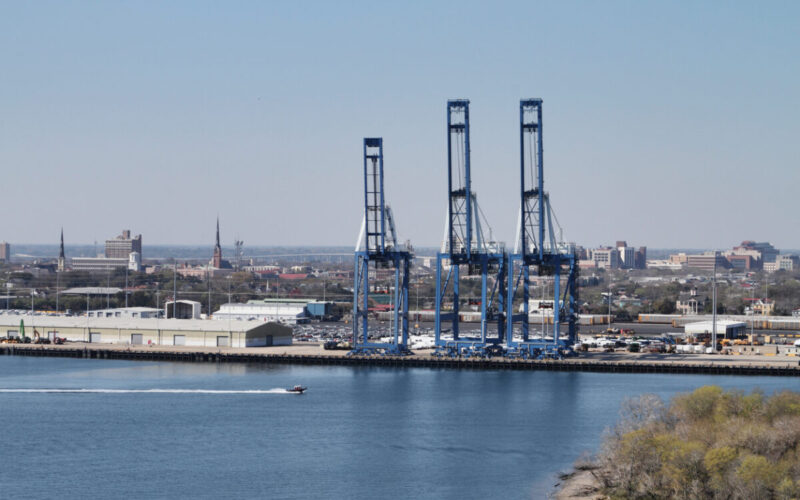The U.S. Supreme Court has announced that it would not hear a South Carolina coastal port dispute between the state and dockworkers at the Port of Charleston’s Leatherman Terminal.
The Wall Street Journal (WSL) noted that the ruling on 20 February puts an end to a long-running labour dispute at the site and dashes hope in South Carolina and Georgia that they will be able to avoid the International Longshoremen’s Association (ILA).
South Carolina Public Radio reported that Justice Brett Kavanaugh was the only justice who claimed he would have approved a formal request for the court to consider the matter. To move forward, at least four justices must agree to hear the case.
READ: US West Coast ports show resilience to labour negotiations
Live 5 News WCSC revealed that the National Labor Relations Board previously determined that union workers may occupy all positions at Charleston’s Hugh Leatherman Terminal. The Fourth Circuit Court of Appeals later affirmed the ruling.
According to WSL, Barbara Melvin, CEO of the South Carolina Port Authority (SC Ports), expressed disappointment in the U.S. Supreme Court decision and stated that the agency will work with the union to resolve a standoff that has limited operations at the first major container terminal built in the US in several years.
South Carolina Public Radio highlighted that ILA President, Harold Daggett, stated: “Now, any new terminal falls under ILA’s jurisdiction, and if not then the United States Maritime Alliance ocean carriers can’t call that terminal. This marks the second historic win for the ILA at the Supreme Court in recent years.”
READ: Canada West Coast port labourers call to strike in unanimous vote
The dispute dates back to 2020 when SC Ports revealed plans to operate the new Hugh Leatherman terminal in Charleston with non-union state workers as lift operators and ILA members doing other duties.
When Maritime Alliances ships moored at the Hugh Leatherman terminal, the ILA filed a lawsuit against the organisation, alleging a violation of the union’s collective bargaining agreement.
SC Ports subsequently filed a complaint with the Nation Labor Relations Board (NLRB), alleging that the ILA’s action was an attempt to prevent one company from doing business with another in order to acquire additional employment, which violated the National Labour Relations Act.









